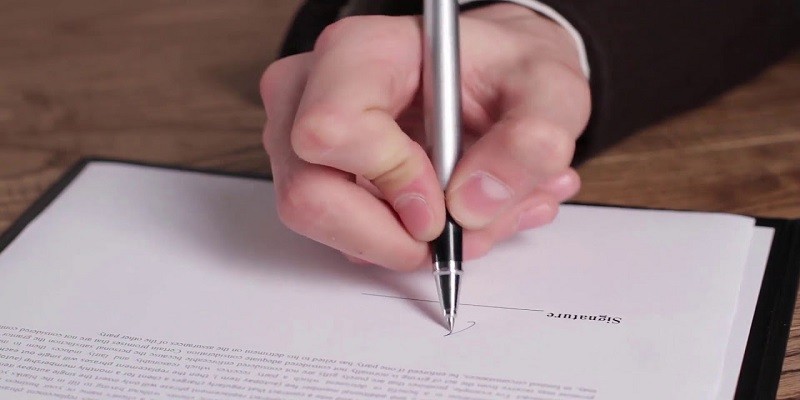Last Updated on June 6, 2023
To sign over parental rights, file a petition with the court and attend a hearing to relinquish legal responsibilities for the child. If you are a parent who wants to give up their legal responsibilities for a child, you can sign over your parental rights.
This legal process involves filing a petition with the court and attending a hearing, where a judge will determine if the request follows the best interests of the child. The decision to sign over parental rights can be life-altering for both the parent and the child, so it is essential to understand the legal, emotional and financial implications.
This article will provide an overview of the process for signing over parental rights, reasons for doing so, and what it means for the child and the parent.

Credit: legalhearsay.com
Understanding Parental Rights And Responsibilities
As a parent, you have legal rights and responsibilities regarding your child’s upbringing and welfare. These rights and responsibilities include:
The Definition Of Parental Rights
Parental rights refer to the legal privileges and entitlements of a parent that relate to their child, such as the right to:
- Make decisions on behalf of the child, such as medical, educational, and religious decisions.
- Live with the child and have custody or visitation rights.
- Receive information about the child’s well-being, such as medical records, school reports, and other relevant information.
- Petition for child support from the other parent.
Overview Of Parental Responsibilities
Parental responsibilities refer to the duties that a parent has towards their child, such as:
- Providing shelter, food, clothing, and other basic necessities.
- Providing love, care, and emotional support to the child.
- Ensuring that the child receives proper medical care and education.
- Protecting the child from harm or danger.
Reasons For Signing Over Parental Rights
There may be various reasons why a biological parent may consider signing over parental rights, such as:
- Giving up custody voluntarily to another person, such as a stepparent or a relative.
- Termination of parental rights due to abuse, neglect, or other issues that endanger the child’s well-being.
- Adoption of the child by another person, such as a relative or a prospective adoptive parent.
- Giving up parental rights as part of a legal agreement, such as an assisted reproduction or surrogacy contract.
Before making the decision to sign over parental rights, it is important to consult with a family lawyer to fully understand the legal implications and potential consequences of such a decision.
Understanding parental rights and responsibilities is essential for all parents to ensure the well-being and proper upbringing of their children. Whether considering signing over parental rights or not, it is important to know your legal obligations and rights as a parent.
Steps To Sign Over Parental Rights
If you are a parent considering relinquishing custody of your child, the process of signing over parental rights can be overwhelming. Seeking legal advice is essential before proceeding with this decision to protect your child’s well-being and legal rights. Here are the necessary steps required to sign over parental rights:
Seek Legal Advice Before Proceeding
Before initiating the process of signing over parental rights, it is crucial to seek expert legal advice. An experienced family lawyer will guide you through the legal implications of the process, ensuring you understand the legal consequences and protect your child’s rights.
Filing The Documentation
Once you decide to give up your parental rights, you must submit the necessary legal documentation. The process varies by state, but the documents may include a consent form, a waiver, and a petition.
Serving The Other Parent Or Legal Guardian
If the other parent or legal guardian is actively involved in the child’s life, they will need to be served with the legal documents before you proceed. Serving the legal documents will give the other parent an opportunity to respond and object to the request.
Failure to serve the other parent may result in the court denying the request.
Consent Of Both Parents
If both parents are on the birth certificate, both parents must give consent to sign over parental rights. If one of the parents has abandoned the child or have been deemed unfit by the court, then they may not need to give consent.
Mandatory Waiting Period
After the paperwork has been filed, there is a mandatory waiting period before the court can grant the termination of parental rights. The waiting period varies by state and typically requires a minimum of 30 days to 90 days.
Court Hearing
A court hearing will be scheduled to determine if terminating parental rights is in the child’s best interest. The hearing is an opportunity for you and the other parent to present evidence to the court.
Finalizing The Process
If the court grants termination of parental rights and other requirements have met, the process will be finalized. The court will issue an order terminating your parental rights, and the child will be placed in the care of another adult or organization.
Signing over parental rights is a complicated and emotional process that requires careful consideration, legal advice, and adherence to legal procedures. Remember that the welfare and best interests of your child should always be a priority.
Frequently Asked Questions Of How To Sign Over Parental Rights?
How Do I Sign Over My Parental Rights?
To sign over your parental rights, you need to go to court and file a petition. You will also need to consent to the termination of your parental rights.
What Are The Reasons To Sign Over Parental Rights?
Parents might sign over their parental rights because of financial, emotional, or personal reasons. Another reason could be if they are not able to properly care for their child.
How Does Signing Over Parental Rights Affect Child Support?
Signing over your parental rights does not relieve you of the obligation to pay child support. You may still be required to pay child support even after your parental rights are terminated.
Can Someone Sign Over Their Parental Rights Without Going To Court?
No. To sign over parental rights, you must go to court and file a petition to terminate your parental rights. This is a legal process that requires court approval.
Once Parental Rights Are Terminated, Can They Be Regained?
In some cases, parental rights may be reinstated, but it is a difficult and lengthy process. The court must determine that it is in the best interest of the child to reinstate parental rights.
Conclusion
After reading this article, you should have a better understanding of the process of signing over parental rights. It is never an easy decision to make, but in some cases, it may be necessary for the well-being of all parties involved.
Remember to consult with a lawyer and thoroughly consider all factors before making any decisions. It is important to have a clear understanding of the legal process and potential consequences before proceeding. Ultimately, the most important factor to consider is what is in the best interest of the child.
By following proper legal procedures and seeking professional guidance, you can ensure that the process of signing over parental rights is handled efficiently and effectively.

